Author

Kay Bonetti
Kay Bonetti is director of the American Audio Prose Library Program.
CONTRIBUTIONS
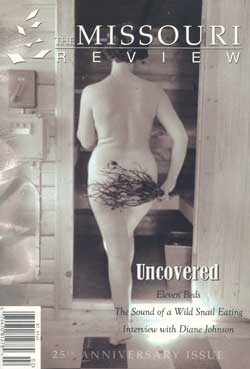
Interviews
Jun 01 2002
Interview with Jamaica Kincaid
Bonetti: Ms. Kincaid, in the novel Lucy, you give Lucy Josephine Potter one of your birth names and your own birthday. How closely do the facts of Lucy’s biography match… read more
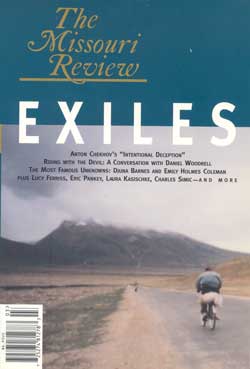
Interviews
Sep 01 1999
An Interview with Daniel Woodrell
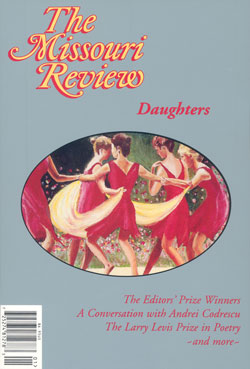
Interviews
Dec 01 1998
An Interview with Andrei Codrescu
Interviewer: How did you come to the United States?
Codrescu: Let’s see. I swam across the Danube through miles of barbed wire….I ran into people holding hand grenades…No, I came on an airplane with my mother in the mid-sixties, 1965. We left Romania. We were bought by the state of Isreal, which at the time was happily buying freedom for Jews from Romania for the princely sum of five thousand dollars a head. The government paid ten thousand dollars for my mother and me. We were supposed to go to Isreal, but we never did.
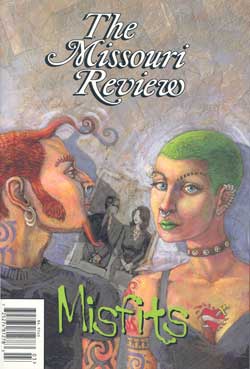
Interviews
Sep 01 1998
An Interview with Jane Smiley

Interviews
Dec 01 1996
A Conversation with Eric Bogosian
Interviewer: In the introduction to subUrbia you talk about growing up in Woburn, Massachusetts. Can you fill us in a little bit more about where you came from?
Bogosian: I come from around the Boston area. My family, as I was growing up, was moving out farther and farther away from the center of the city into the suburbs, and I ended up spending most of my adolescence in Woburn. It’s very middle-class, a lot of blue-collar.
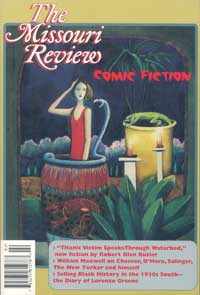
Interviews
Sep 01 1996
A Conversation with William Maxwell
Interviewer: You’ve said you learned from E.B. White that the “I” should always be a real character in any piece that you’ve written. Have you ever had a sense in your writing life that you were flying in the face of current convention, or being old-fashioned, by adhering to that principle?
Maxwell: I never worried about being old-fashioned because the books I’ve continued to read all my life have been the Russians. I wanted to write about people, men and women. What’s old-fashioned about men and women?
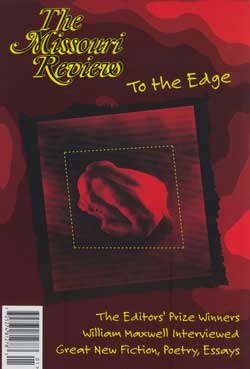
Interviews
Mar 01 1996
A Conversation with William Maxwell
“The novelist has a moral obligation not to leave the reader with unanswered questions.”

Interviews
Dec 01 1995
An Interview with Larry Brown

Interviews
Sep 01 1995
An Interview with Paulette Jiles
Interviewer: You seem to have very definite ideas about the function of family stories, and the whole principle of storytelling. Can you tell us about those ideas?
Jiles: Storytelling is a participatory sport, not a spectator sport. It’s one that anybody can indulge in, and is expected to, in families that still have the old traditions, and even in some that don’t.
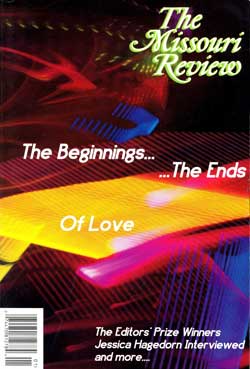
Interviews
Mar 01 1995
An Interview with Jessica Hagedorn
Interviewer: Jessica Hagedorn, you’ve worked in such a variety of mediums: poetry, prose, theater, rock ‘n’ roll—with The Gangster Choir—and also film. What medium are you busy with right now?… read more
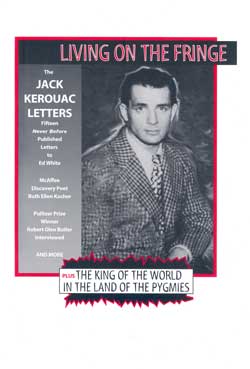
Interviews
Dec 01 1994
An Interview with Robert Olen Butler
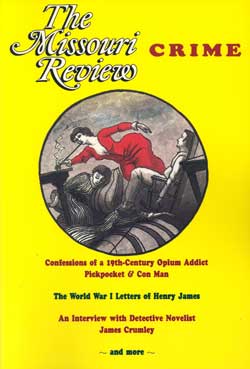
Interviews
Jun 01 1993
An Interview with James Crumley
This interview is not currently available online.
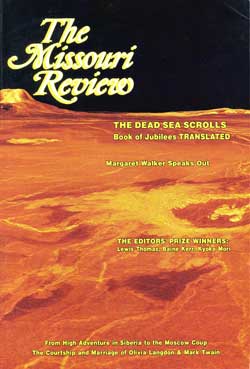
Interviews
Dec 01 1992
An Interview with Margaret Walker
I’m one of the few black writers who lives in the South and writes there. Alice Walker told me she had to get out of Mississippi. She simply could not write there. I don’t feel that I have to be in exile to write. I wrote at Yaddo. I wrote at Cape Cod. I wrote in Virginia. I wrote in North Carolina. I wrote in New York. I wrote in Chicago. There is no place that I can live where I can’t write. Maybe if I were in New York or Chicago my stuff might be considered better than it’s considered as a southern woman living in Jackson. But I don’t care about that. Those places were too cold, the pace was too fast. I just like living where I live.
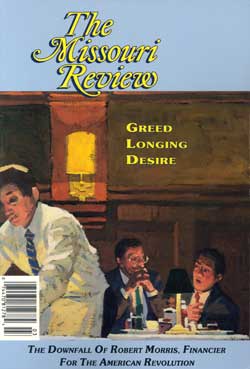
Interviews
Jun 01 1992
An Interview with David Bradley
This interview is not currently available online.
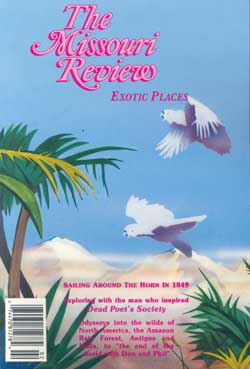
Interviews
Mar 01 1992
An Interview with Jamaica Kincaid
This interview is not currently available online.
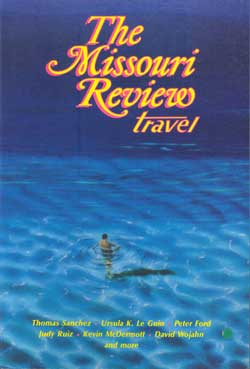
Interviews
Sep 01 1991
An Interview with Thomas Sanchez
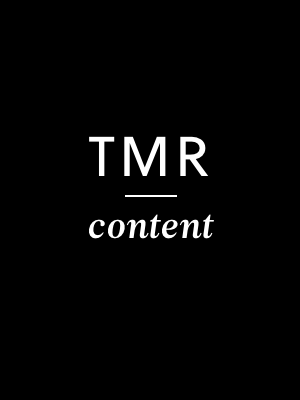
Interviews
Jun 01 1991
An Interview with Robb Forman Dew

Interviews
Mar 01 1991
An Interview with Diana O'Hehir
“With a novel, you live in that world those people for at least a year, and that is delightful.”
“I had a heavy duty urge to write about northern California–those small hot towns with the bright red earth and the bright blue sky.”

Interviews
Jun 01 1990
An Interview with Edmund White
“Most writers write too much, they work too much, they live too little, and they anguish too much.”
“Writing about a culture, where people no longer troubled themselves about what was good, but only about what was beautiful, fascinated me.”
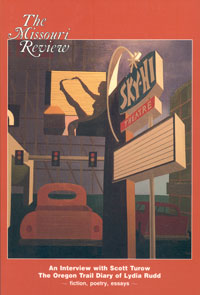
Interviews
Mar 01 1990
An Interview with Scott Turow
“I couldn’t get used to the idea that mere will would not produce a creative work.”
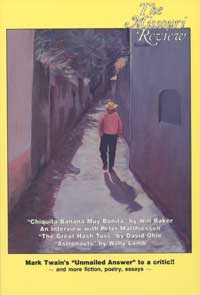
Interviews
Jun 01 1989
An Interview with Peter Matthiessen
“If you find yourself coming back the next day and erasing more of the so-called improvements than you keep, you’d better get the hell out of that book.”
“We all must make an effort for the betterment of mankind, even though we know it won’t do any good.”

Interviews
Mar 01 1989
An Interview with Chinua Achebe
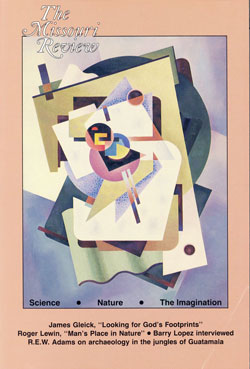
Interviews
Sep 01 1988
An Interview with Barry Lopez
I wanted to write, but I never thought that I could make my living that way, so like everybody else in that position, I decided to go to graduate school. I didn’t know what else to do. I finished a Master’s degree, and I was very briefly in an MFA program. I never thought of myself in terms of having an occupation as a writer until I filled out my 1040 in April, where I put that down. I just did what I thought of as “my work”. I traveled and paid attention, and I tried to express what I saw clearly in language that I thought would leave me, personally on the periphery. I would remind myself that if I lost a sense of naivete I’d lose the frame of mind the reader needs, which is to start with you from scratch.
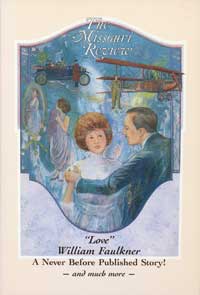
Interviews
Mar 01 1988
An Interview with Louise Erdrich and Michael Dorris
We’re collaborators, but also indivdual writers. Michael and I plunge into each other’s work with very little ceremony. We plot together, we dream up our characters together, we do everything together, except write the actual drafts, although even the writing is subject to one another’s deepest desires. We go over every manuscript word by word. Then we argue over whatever we feel should be changed and we try to come to some sort of agreement on everything that goes out.

Interviews
Jun 01 1987
An Interview with Richard Ford
The full text of this interview is currently not available online.

Interviews
Jun 01 1986
An Interview with John Edgar Wideman
This content is not currently available online.
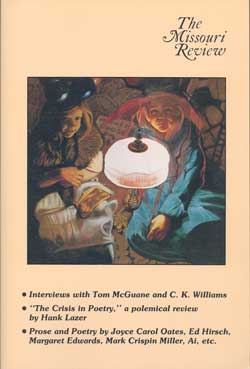
Interviews
Mar 01 1986
An Interview with Tom McGuane
This content is not currently available online.

Interviews
Jun 01 1985
An Interview with Jim Harrison
“I want to create a hero who was free from dread.”

Interviews
Mar 01 1985
An Interview with William Kennedy
There’s something in our makeup that is fascinated by the lawbreakers who carry things to extremes, by “extremity” in our attitudes toward life, and that’s what my books have come to represent, to me anyway: the treatment of characters in extreme conditions.

Interviews
Jan 01 1983
An Interview with Harry Crews
I wanted very much to write the book [A Childhood], but wasn’t sure I could. It is first of all about people, many of whome are still alive, or their children are, and since I wanted to be true to that time and that place and that experience I put them in the book as they were. You and I know that most people don’t want to be set down as they are. They want to look better than they are. It’s a perfectly human thing, but you can’t do that when you’re writing.
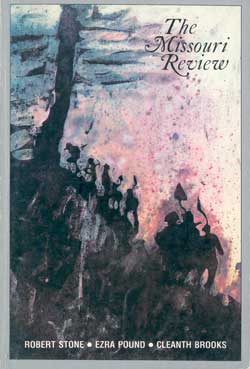
Interviews
Sep 01 1982
An Interview with Robert Stone
I find that I’m difficult to satisfy in terms of my own stories. I think I have destroyed many more than I have ever submitted.
